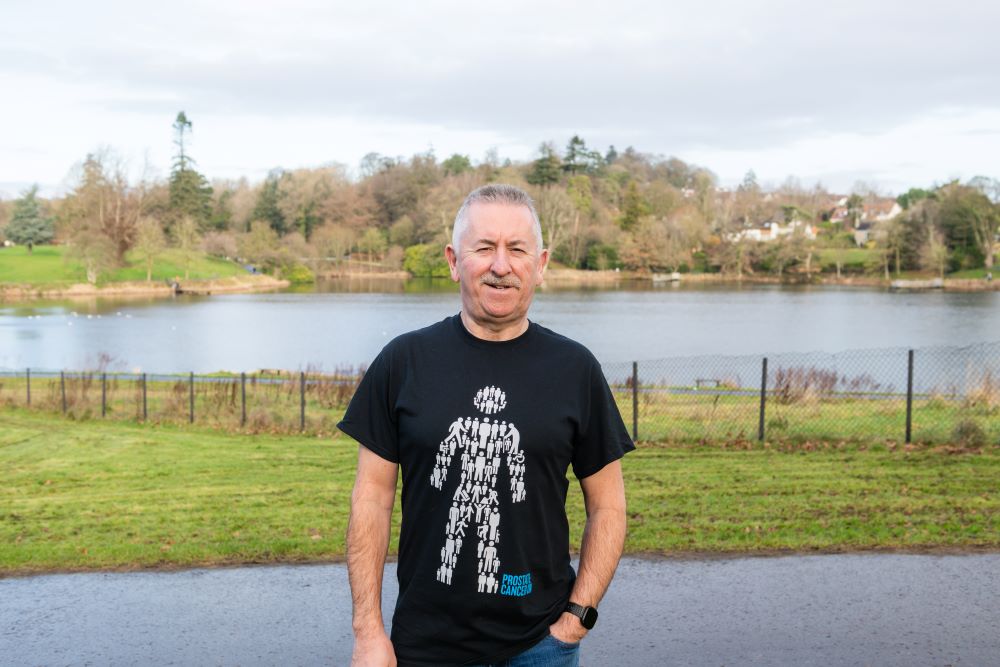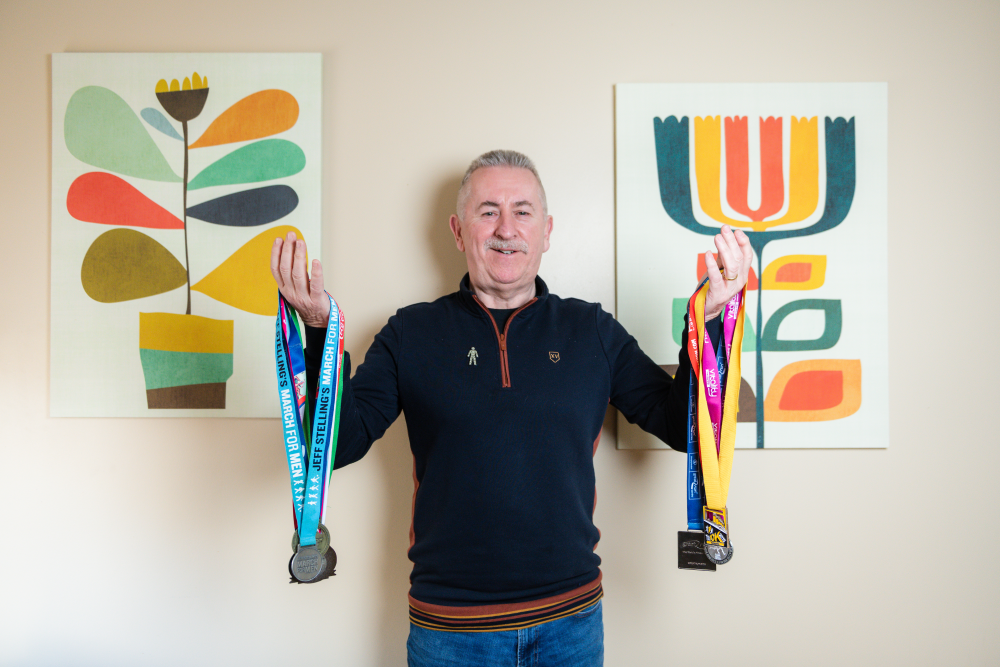Real Stories
20 Feb 2023Tell your MP, Boys need Bins: Help us tackle the male incontinence taboo
1 in 8 men will get prostate cancer, and some men experience urinary and bowel problems as a side effect of their treatment. A lack of public understanding of the condition, the stigma surrounding incontinence and the lack of facilities for men are damaging men’s physical and mental health. That’s why we’re calling for change.

It’s estimated that one in three men over 65 has a urinary incontinence problem in the UK and that one in 20 men over 65 suffers from bowel incontinence. But despite this prevalence, men’s lives are being limited by the taboo which surrounds incontinence.
Compounded by the lack of public awareness and of facilities for men, like bins in toilets to dispose of sanitary products, many men are suffering in silence.
Help us take this to political leaders across the country. Together we can call for changes to get bins provided in male toilets nationally. Send our letter to your MP and say ‘Boys need Bins’.
“I used to try and make excuses not to go out”
65 year old Frank McNally is a part-time civil servant and lives in Dungannon in County Tyrone with his wife, Maura. He was diagnosed with prostate cancer in April 2008, when he was just 50 years old.
“As you can imagine, having just turned 50, I was totally devastated. It all happened very quickly. The prostate was removed in June 2008 and I haven’t required any further treatment since then, thankfully.
“The three things that always stuck in my mind as being hardest to get over was first; being told you have cancer. The second was having to tell my children and thirdly was the side effects of the treatment, trying to deal with the side effects was tough, really tough.
“I was told prior to the surgery what the side effects would be, but I wasn't expecting the incontinence to be as bad as it was. When the catheter was removed, I remember for about the first four or five weeks I was having to wear a large nappy type of incontinence pad and having to get changed three or four times a day. I just couldn't see any end to it.
“Thankfully, with help from the incontinence nurse and Prostate Cancer UK, over time the symptoms did ease. However, I still wear a pad now, albeit a much smaller and more discrete one. And I cannot go about my daily life without wearing a pad.

“In the early days, if I went anywhere, the first place I checked out was the toilets, because I knew I probably had to change the pad more often than I do now, so I wanted to know what I was working with. I would go into a cubicle, and I used to think to myself ‘What am I going to do with this pad?’
“A number of times I folded it up, put toilet roll around it and put it in my pocket and left, because there were no bins there to safely dispose of it. I didn’t want to use the general waste bins that are available as I didn’t think it would be hygienic.”
We're starting a national conversation on male incontinence
Frank is supporting our campaign on male incontinence, in partnership with hygiene services provider phs Group, called Dispose with Dignity.
We conducted research to highlight the scale of male incontinence in the UK and found that previous estimates of how many men are dealing with incontinence may be vastly underestimated. More than half (51%) of the men surveyed, of all ages, have experienced symptoms associated with urinary incontinence. This is leaving nearly eight in 10 men anxious to leave the house.
To help support men like Frank, we’re starting a national conversation on male incontinence and calling for bins to be provided in male toilets across the country. We’ve worked with phs Group to create a dedicated male incontinence bin, which businesses across the UK including MOTO service stations and Garric Ltd are already stocking for staff and customers.
But we need to make MPs aware of the scale of this issue and what they can do to make a much needed change.
Help build a world where men’s lives are not limited by incontinence. Join our campaign today to say Boys need Bins.
For more information on all the work we’re doing to support men with incontinence, visit our incontinence campaign hub.
If you or a loved one has been affected by incontinence as a result of prostate cancer treatment, our Specialist Nurses are here for you. You can get in touch via phone, email, webchat or WhatsApp.
